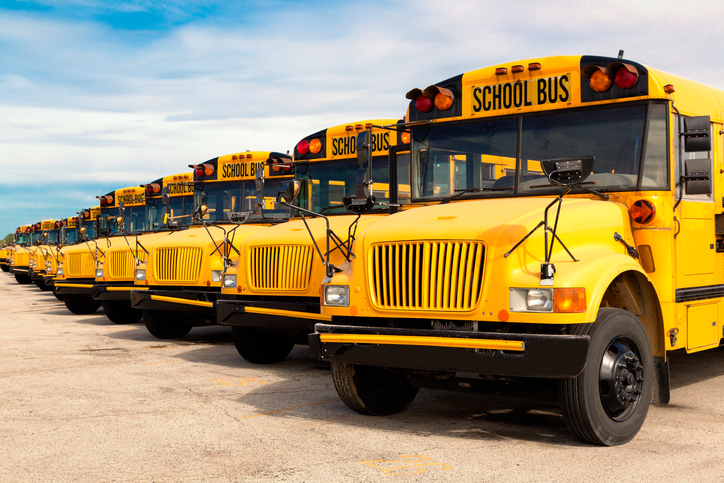Reliability and fuel savings are so important in today’s school bus market. Buses need to last as long as they can to avoid putting strain on your school board’s shrinking budget. Delco Remy starters and alternators for school busses are designed to last and minimize downtime so kids get to school comfortably and on time every day.
Why a Bus is Special
School buses perform mostly at slow speeds. Lighting and equipment associated with safety and passenger mobility add electrical loads that must be met at these same slow speeds. Delco Remy high output alternators are able to contend with these demanding electrical loads because they’re designed to. They’re school bus-specific.
The Delco Remy 40SI and 28SI alternators offer:
- Remote Sense, which can reduce battery charge time by 50%
- A temperature-resistant design that ignores extreme temperatures and provide a long life. Both models can withstand extreme underhood temperature demands of up to 125C—that’s 4 full degrees above the competition.
- High efficiency. As the alternator becomes more efficient in the process of converting mechanical power into electrical power, less fuel is consumed.
High-Efficiency Alternators Save Gas
Delco Remy collected operating data on school bus applications to find out what was actually occurring over the course of the school week and the impact it had on the electrical system. Its high output alternators were installed and compared to other standard industry models. The results were amazing:
- Fuel cost with base high efficiency alternator: $7533*
- Fuel cost savings with efficiency alternator: $1507*
*Based on $4 / gal diesel fuel cost and 250k mi
While the power demands of the alternator are generally small in comparison to the overall vehicle, the impact on fuel cost is remarkable. What we know – increasing alternator efficiency can, and will, measurably reduce fuel costs.
Measure the Current Draw of Your Bus Fleet
Most school buses are outfitted with air conditioners, wheelchair lifts and other accessories after they are sold to the school board. These buses end up with battery problems because the original alternator doesn’t provide enough output to handle the new electrical demands. If the alternator isn’t upgraded you’ll end up with constant discharging of the batteries, premature alternator failure and starting issues due to low voltage.
Are Your Fleet’s Alternators Sufficient?
Measuring the current draw for the bus is the best way to see if the alternator has sufficient output for all electrical demands. You can follow the steps in this 4 minute video from Delco Remy .
- Fully charge the batteries before beginning. Partially charged batteries will result in inaccurate readings.
- Attach a clamp-on ammeter around negative battery cables.
- Turn on all accessories, including the heater, defroster blower fan, lights, wipers, radio, video monitor system, stop flashers and warning lights.
- Take and record a reading.
- Record the amperage draw of the special needs lift if the bus has one. While the lift is going up, take a reading and record it. Keep in mind the amperage draw may vary depending on the type of lift being used and its age.
- Record reading with the engine on, high RPM and accessories off.
- Calculate the recommended alternator amperage rating by adding all the readings together and then multiplying that total by 1.2. As a rule of thumb, the total vehicle amperage demands should be 20 to 30 % under your alternator’s rated output.

